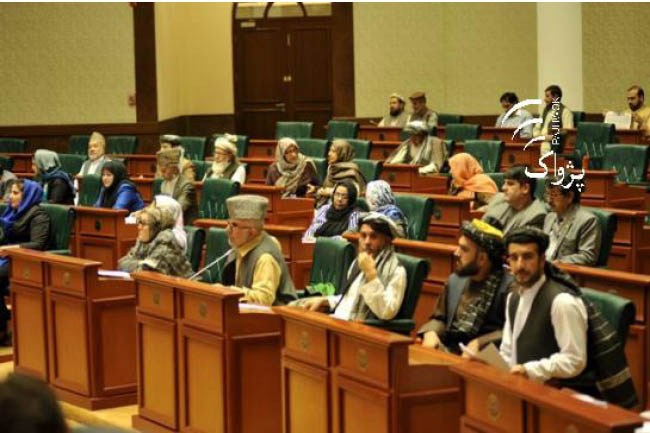“Democracy is an impossible thing until the power is shared by all, but let not democracy degenerate into monocracy.” In democratic states, people are entitled equally and no one is discriminated on the grounds of his/her race, color or creed. Individuals are able to exercise their freedom, mainly freedom of thought and expressions, without barriers. Parliament is considered the “beating heart of democracy” through which the nation’s elected representatives approve law and supervise the executive power to maintain the nation’s rights and liberty and ensure that officials do not exploit their power.
Moreover, the segregation of powers (legislative, executive and judiciary powers) prevents from the centralization of power in a single entity and gives participatory role to the nation. A fair and free election, in which people’s votes bear equal value, is also one of the elements of democracy. There are some principles in election: the principles of population’s proportion, equal suffrage, being direct, secret, free and general. Basically, Athens, the capital city of Greece, was the hotbed of democracy and each individual played his/her role in social affairs directly rather than electing representatives – this is called direct democracy which is applicable in a small territory with small number of population. However, Athens’ democracy is was not as perfect as it is in modern world since only free men were considered “citizen” and women, slaves and foreigners were deemed inferior and were deprived of their rights. In a nutshell, although Athens paved the ground for democratic states, some were discriminated on the basis of their race and color and this is against the spirit of democracy.
Political parties play a highly constructive role in a society. A political party is a group of individuals with common objective having a statute and widespread realm of activities within a territory and continues its activities for a long time via certain financial source. Parties are formed to put a collective energy on a certain goal and work in a systematic way rather than individual and unorganized activities that may lead to failure. Political parties have the responsibility of spreading awareness to the public, transferring the nation’s message to the state and monitoring the government’s activities. In addition, political parties enlighten the agenda of candidates to facilitate better selection for citizens. States will have to pave equal ground for political parties and equip them with equal resources so that they compete in equal atmosphere.
In democratic states, it is not only parliament but also civil society activists and media that play monitoring role so as to prevent from exploitation of power. MPs have the authority to give vote of confidence to ministers or incapacitate them in case of not fulfilling their responsibilities honestly. Media spread awareness and host political officials to explain their activities and answer to the questions of the public. Civil society activists are to raise their voice if the state transcends the law. After all, civil disobedience is allowed in democratic states. For instance, when approving a law or signing an agreement put social interests at stake, civil society activists can resort to civil disobedience: which is to be done in open, for political objective and not fearing prosecution. The main goal of civil disobedience is to draw the public attention to injustice done by state or influential organizations and putting pressure on them to revise their plan but it must be the last resort.
However, some philosophers believe that no one is allowed to break the law though it might be unjust. They argue that the nation can put pressure through their representatives to change the law rather than violating it. Socrates is of the same view. When he was condemned by the state to drink hemlock, he succumbed to this though he knew that it was unjust. However, it should be noticed that the Greek democracy was classic and in its basic form. In modern democracy, civil disobedience is allowed to protest against injustice.
Although president and MPs are elected by the votes of the majority but it does not necessarily mean that the rights and liberty of the minority be ignored. Therefore, constitutions must respect and protect the rights of all citizens equally and never discriminate one on his/her racial or religious backgrounds.
Democracy is widely accepted for supporting the rights of all individuals and alleviating the pains and sufferings of the citizens. Implementing the very true spirit of democracy is next to impossible but struggles for better democracy never stop since it is relative: one country is more democratic than another. Therefore, governments seek to protect the rights and freedoms of the public in better way to strengthen democratic standards at the national and international levels.
In Afghanistan, there are many barriers before democracy and the nation’s rights are trampled upon on a large scale. The graph of civilian casualties is high and militancy continues unabated. The legal period of parliament is ended and the election is yet to be held. Additionally, the transparency of past election was under serious question. One will conclude that law is violated not only by citizens but also by the state. Undemocratic and anti-democratic practices are seen widely in social and political life which is a matter of great concern. In post-Taliban Afghanistan, steps were taken towards democracy, but the process of democratization is hampered by many barriers.
Home » Opinion » Towards Democratization
Towards Democratization
| Hujjatullah Zia

